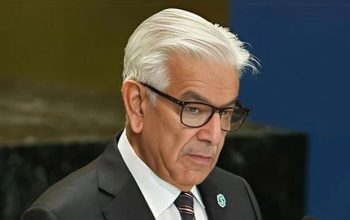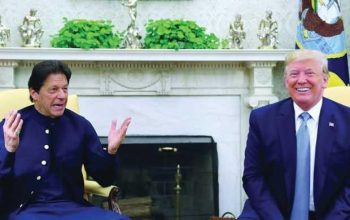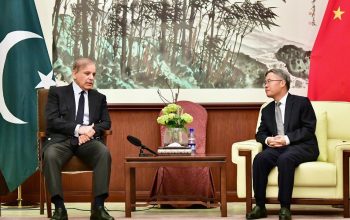The participants of a seminar highlighted flaws in the electoral process, calling for genuine change emphasising intra-party elections and increasing women's participation in the electoral process.
Speaking at a seminar titled ‘Changing Landscape of Pakistani Electorate and Role of Political Parties in Fair Representation’, organised by the Press Information Department (PID), they said the Constitution entrusts the Election Commission of Pakistan (ECP) with the responsibility of conducting free and fair elections in the country.
Senator Syed Ali Zafar from the Pakistan Tehreek-e-Insaf (PTI) expressed the view the Elections Act 2017 enhanced the authority of the ECP.
“The Constitution empowers political parties to participate in elections and establish a government.”
Muhammad Asghar, the deputy secretary general of the Jamat-e-Islami (JI), stated that a significant majority of people refrained from voting, and many governments failed to truly represent the majority.
He highlighted that the JI was dedicated to fostering genuine change in the country.
He emphasised discouraging participation as independent candidates, highlighting that the JI had a record number of women involved in various tiers, with over five per cent of women receiving tickets.
He suggested that a person who did not give share of women in property should be disqualified.
Read also: Populace far away from electoral process
Further, he stated that without intra-party elections, democracy could not flourish, and the influence of money should be eliminated from the country's politics.
He suggested that elections should be based on proportional representation.
“The JI has filed the most number of young candidates in these elections and is actively involved in caring for orphans.”
He advocated for a parliamentary system in the country, emphasising that the leader of a political party must possess an immaculate character.
Dr Asad Muneer of the Allama Iqbal Open University (AIOU) appreciated the allocation of reserved seats in parliament as a positive gesture.
He expressed optimism that the situation would gradually improve, emphasising the need for political parties to elect their leadership through a democratic process.
Dr Mujeeb from the Quaid-e-Azam University highlighted the weakness in Pakistan's electoral process, describing it as catering mainly to the elite.
He noted that the political parties often functioned as collections of notable individuals, emphasising absence of any significant movement initiated by these parties.
Read: Waziristan woman jumps into electoral fray
Hafiz Tahir Khalil, a journalist, highlighted the role of media in strengthening democracy, expressing confidence in the potential of the country's institutions to deliver.
He hoped that the young generation would lead the country out of crisis.
Khalil stressed the importance of political parties addressing internal issues and implementing their manifestos.
Additionally, he noted the need for consensus among all political parties on basic national issues.
This was the second seminar the PID initiated to encourage civic engagement and participation in the upcoming elections on Feb 8.
Stakeholders invited to these seminars encompassed representatives from major political parties, the ECP, media, academia, civil society, and the general public.
On Jan 11, the PID conducted its inaugural seminar, 'Pakistan Elections 2024: The Economic Reforms Agenda of Political Parties’, at a local hotel in Islamabad, featuring comprehensive representation from stakeholders.
The PID has scheduled two additional seminars in the federal capital on various topics. The third, focusing on the ‘Electoral Code of Conduct: Ethical Practices of Stakeholders Including Media’, is scheduled for Jan 25. The seminar titled ‘Political Participation and Empowerment of Youth, Women, Transgender, and Cultural Minorities’ will be held on Feb 1.
Read the full story at the express tribune website.


